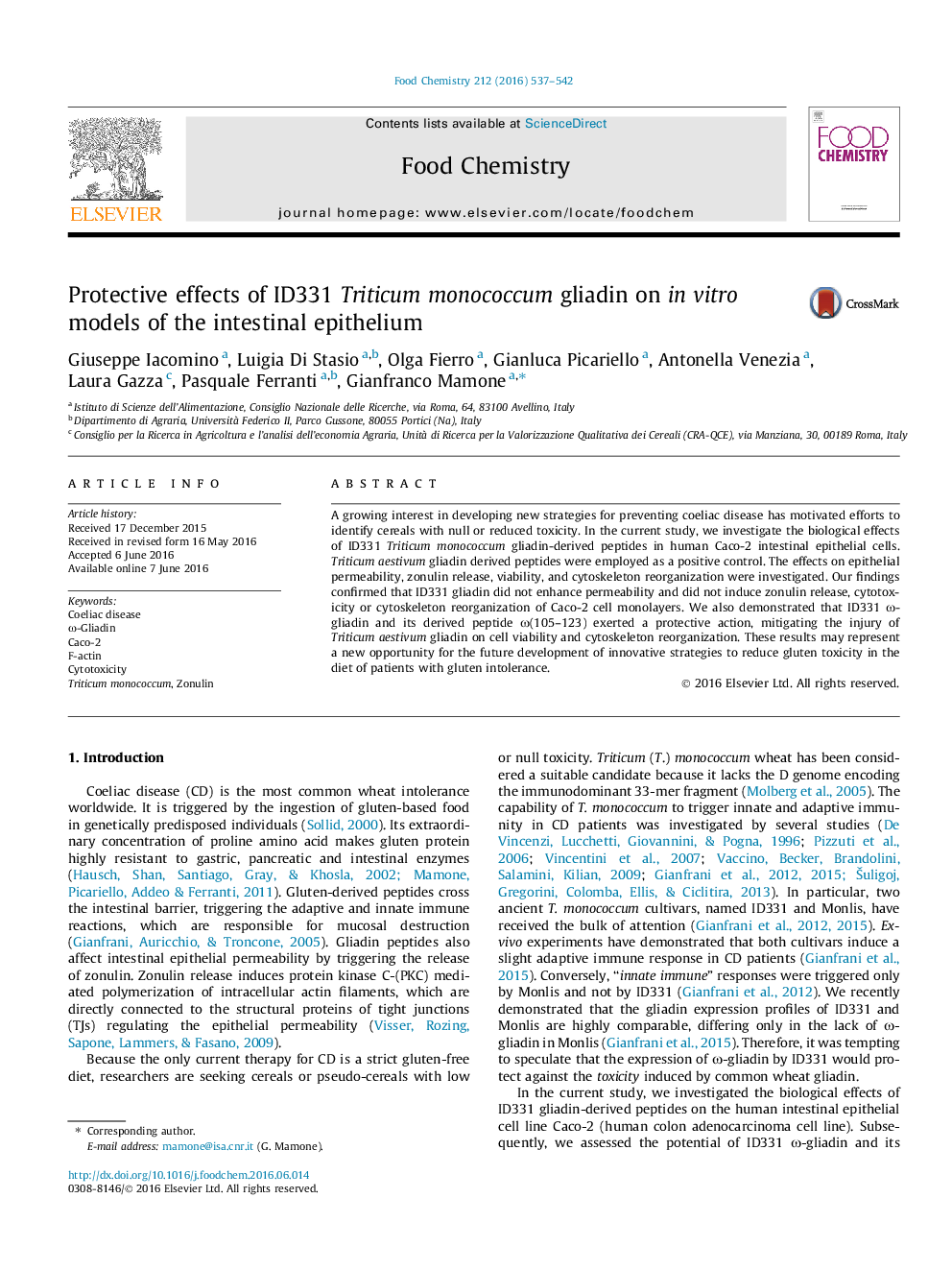| Article ID | Journal | Published Year | Pages | File Type |
|---|---|---|---|---|
| 1185074 | Food Chemistry | 2016 | 6 Pages |
•ID331 gliadins do not enhance permeability and do not induce zonulin release.•ID331 gliadins do not trigger cytotoxicity or cytoskeleton reorganization.•ID331 gastrointestinal digestion releases ω(105–123) bioactive peptide.•ω(105–123) exerts a protective action against the toxicity induced by T. aestivum.
A growing interest in developing new strategies for preventing coeliac disease has motivated efforts to identify cereals with null or reduced toxicity. In the current study, we investigate the biological effects of ID331 Triticum monococcum gliadin-derived peptides in human Caco-2 intestinal epithelial cells. Triticum aestivum gliadin derived peptides were employed as a positive control. The effects on epithelial permeability, zonulin release, viability, and cytoskeleton reorganization were investigated. Our findings confirmed that ID331 gliadin did not enhance permeability and did not induce zonulin release, cytotoxicity or cytoskeleton reorganization of Caco-2 cell monolayers. We also demonstrated that ID331 ω-gliadin and its derived peptide ω(105–123) exerted a protective action, mitigating the injury of Triticum aestivum gliadin on cell viability and cytoskeleton reorganization. These results may represent a new opportunity for the future development of innovative strategies to reduce gluten toxicity in the diet of patients with gluten intolerance.
